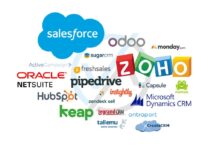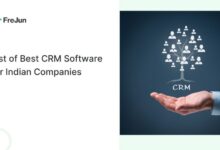Cloud Based SaaS CRM Solution: 7 Ultimate Benefits You Can’t Ignore
In today’s fast-paced digital world, a cloud based saas crm solution is no longer a luxury—it’s a necessity. Discover how this powerful tool transforms customer relationships, boosts sales, and scales with your business.
What Is a Cloud Based SaaS CRM Solution?

A cloud based saas crm solution is a customer relationship management system hosted on remote servers and delivered via the internet as a subscription service. Unlike traditional on-premise CRM software, which requires physical installation and maintenance, SaaS CRM is accessible from any device with an internet connection, offering unmatched flexibility and scalability.
Defining SaaS and Cloud Computing
SaaS, or Software as a Service, is a software distribution model where applications are hosted by a third-party provider and made available to customers over the internet. This model eliminates the need for businesses to handle software installation, updates, and infrastructure management.
- SaaS applications are centrally hosted and maintained.
- Users access the software via web browsers.
- Providers manage security, scalability, and performance.
Cloud computing, the backbone of SaaS, refers to the delivery of computing services—including servers, storage, databases, networking, software, and analytics—over the internet. This allows companies to scale resources on demand without investing in physical hardware.
How CRM Fits Into the SaaS Model
Customer Relationship Management (CRM) systems are designed to manage a company’s interactions with current and potential customers. When CRM is delivered as a SaaS product, it becomes a cloud based saas crm solution that centralizes customer data, automates sales processes, and enhances customer service—all without the burden of IT overhead.
- Real-time data synchronization across teams.
- Automatic software updates and patches.
- Pay-as-you-go pricing models that reduce upfront costs.
According to Gartner, the global SaaS market is projected to reach over $230 billion by 2025, with CRM systems being one of the largest segments.
“The shift to cloud-based CRM is not just about technology—it’s about transforming how businesses engage with customers.” — Salesforce Research
Top 7 Benefits of a Cloud Based SaaS CRM Solution
Adopting a cloud based saas crm solution offers transformative advantages for businesses of all sizes. From cost savings to improved collaboration, these benefits drive efficiency and growth.
1. Cost Efficiency and Predictable Pricing
One of the most compelling reasons businesses choose a cloud based saas crm solution is the significant reduction in upfront and operational costs. Traditional CRM systems often require expensive hardware, software licenses, and dedicated IT staff for maintenance.
- No need for on-site servers or data centers.
- Subscription-based pricing with monthly or annual plans.
- Lower total cost of ownership (TCO) over time.
For example, a small business can start with a basic CRM plan for as low as $12 per user per month and scale up as needed. This flexibility makes it accessible even for startups and SMEs.
2. Rapid Deployment and Easy Implementation
Unlike on-premise systems that can take months to deploy, a cloud based saas crm solution can be up and running in days or even hours. Most providers offer intuitive setup wizards, pre-built templates, and onboarding support.
- Minimal IT involvement required.
- Quick integration with existing tools like email, calendars, and marketing platforms.
- Immediate access to the latest features and updates.
As noted by Forrester Research, companies using SaaS CRM report 50% faster deployment times compared to traditional systems.
3. Scalability and Flexibility
As your business grows, so do your CRM needs. A cloud based saas crm solution scales seamlessly with your organization. Whether you’re adding new users, expanding to new regions, or integrating additional functionalities, the system adapts without disruption.
- Add or remove users with a few clicks.
- Scale storage and processing power automatically.
- Support for multi-language and multi-currency operations.
This elasticity ensures that your CRM grows with you, avoiding the costly and time-consuming process of migrating to a new system.
4. Remote Access and Mobile Capabilities
In an era where remote work is increasingly common, having a cloud based saas crm solution means your team can access customer data from anywhere, at any time. Whether employees are in the office, at home, or on the road, they stay connected and productive.
- Mobile apps for iOS and Android devices.
- Offline access with automatic sync when reconnected.
- Real-time updates across all devices.
According to a Salesforce report, 78% of high-performing sales teams use mobile CRM tools to close deals faster.
5. Automatic Updates and Innovation
With a cloud based saas crm solution, you never miss out on the latest features. Providers regularly roll out updates, security patches, and new functionalities without requiring user intervention.
- Continuous improvement without downtime.
- Access to AI-powered tools like predictive analytics and chatbots.
- Regular compliance updates for data protection regulations.
This ensures your business always operates with cutting-edge technology, giving you a competitive edge.
6. Enhanced Data Security and Compliance
Contrary to common misconceptions, cloud-based CRM systems often offer superior security compared to on-premise solutions. Leading providers invest heavily in encryption, threat detection, and compliance certifications.
- End-to-end data encryption (in transit and at rest).
- Regular security audits and penetration testing.
- Compliance with GDPR, HIPAA, SOC 2, and other standards.
For instance, Microsoft Dynamics 365, a leading cloud based saas crm solution, adheres to over 90 compliance standards globally.
7. Seamless Integration with Other Business Tools
A cloud based saas crm solution doesn’t exist in isolation. It integrates effortlessly with email platforms, marketing automation tools, ERP systems, and customer support software, creating a unified ecosystem.
- Native integrations with tools like Gmail, Outlook, Slack, and Zoom.
- API access for custom integrations.
- Pre-built connectors for e-commerce platforms like Shopify and Magento.
These integrations eliminate data silos, improve workflow automation, and enhance decision-making through centralized reporting.
Key Features of a Modern Cloud Based SaaS CRM Solution
To fully leverage the power of a cloud based saas crm solution, it’s essential to understand its core features. These functionalities are designed to streamline operations, improve customer engagement, and drive revenue growth.
Contact and Lead Management
At the heart of every CRM is the ability to manage contacts and leads effectively. A cloud based saas crm solution provides a centralized database where all customer information—names, emails, phone numbers, interaction history, and preferences—is stored and easily accessible.
- Duplicate detection and merge capabilities.
- Custom fields and tagging for segmentation.
- Lead scoring and qualification workflows.
This ensures sales teams can prioritize high-value prospects and nurture relationships efficiently.
Sales Automation and Pipeline Tracking
Sales automation reduces manual tasks such as data entry, follow-up reminders, and quote generation. With a cloud based saas crm solution, sales reps can focus more on selling and less on administrative work.
- Automated task assignments and email sequences.
- Visual sales pipelines with drag-and-drop functionality.
- Forecasting tools based on historical data.
According to Nucleus Research, companies using CRM automation see a 14.6% increase in sales productivity.
Customer Service and Support Tools
Exceptional customer service is a key differentiator in today’s market. A cloud based saas crm solution includes robust support features such as ticketing systems, knowledge bases, and live chat integration.
- Case management with SLA tracking.
- Self-service portals for customers.
- AI-powered chatbots for instant responses.
These tools help reduce response times, improve resolution rates, and enhance overall customer satisfaction.
How to Choose the Right Cloud Based SaaS CRM Solution for Your Business
Selecting the ideal cloud based saas crm solution requires careful evaluation of your business needs, budget, and long-term goals. Not all CRMs are created equal, and choosing the wrong one can lead to wasted resources and poor adoption.
Assess Your Business Needs and Goals
Start by identifying the specific challenges you want the CRM to solve. Are you struggling with lead tracking? Do you need better customer support tools? Is your sales team disorganized?
- Define key performance indicators (KPIs) for success.
- Involve stakeholders from sales, marketing, and customer service.
- Map out current workflows and pain points.
This foundational step ensures you select a solution that aligns with your strategic objectives.
Evaluate Scalability and Customization Options
Your CRM should grow with your business. Look for a cloud based saas crm solution that offers flexible pricing tiers, modular features, and customization capabilities.
- Can the system handle increased data volume and user count?
- Does it allow custom fields, workflows, and dashboards?
- Is there support for industry-specific requirements?
For example, a healthcare provider may need HIPAA-compliant features, while an e-commerce business might prioritize order tracking and inventory integration.
Check Integration Capabilities
A CRM that doesn’t integrate with your existing tools defeats the purpose of centralization. Ensure the cloud based saas crm solution supports integration with your email, marketing automation, accounting, and e-commerce platforms.
- Look for native integrations or API access.
- Verify compatibility with tools like Mailchimp, QuickBooks, or HubSpot.
- Test integration during the trial period.
Platforms like Zapier can also bridge gaps between systems that lack direct integration.
Top Cloud Based SaaS CRM Solutions in 2024
The market is flooded with cloud based saas crm solution options, each with unique strengths. Here’s a breakdown of the top contenders based on functionality, user experience, and value.
Salesforce Sales Cloud
Salesforce is widely regarded as the gold standard in cloud based saas crm solution platforms. It offers a comprehensive suite of tools for sales, service, marketing, and analytics.
- Highly customizable with AppExchange marketplace.
- Strong AI capabilities via Einstein Analytics.
- Global support and extensive documentation.
While powerful, it can be complex and expensive for small businesses. Pricing starts at $25/user/month.
HubSpot CRM
HubSpot offers a free cloud based saas crm solution with premium add-ons for marketing, sales, and service hubs. It’s known for its user-friendly interface and inbound methodology.
- Free plan includes contact management, email tracking, and deal pipelines.
- Seamless integration with HubSpot’s marketing tools.
- Ideal for startups and growing businesses.
Paid plans start at $45/month, making it a cost-effective choice for SMEs.
Microsoft Dynamics 365
Dynamics 365 combines CRM and ERP functionalities in a unified cloud based saas crm solution. It’s particularly strong for enterprises already using Microsoft 365.
- Tight integration with Outlook, Teams, and Power BI.
- Advanced AI and machine learning features.
- Robust security and compliance framework.
Pricing starts at $65/user/month, with enterprise plans offering deeper customization.
Common Challenges and How to Overcome Them
While a cloud based saas crm solution offers numerous benefits, implementation can come with challenges. Understanding these hurdles and how to address them is crucial for success.
User Adoption and Training
One of the biggest obstacles is getting employees to embrace the new system. Resistance to change, lack of training, and poor user experience can lead to low adoption rates.
- Provide hands-on training sessions and video tutorials.
- Appoint internal CRM champions to guide teams.
- Start with core features and gradually introduce advanced tools.
According to Capterra, 43% of CRM failures are due to poor user adoption.
Data Migration and Quality
Migrating data from legacy systems to a new cloud based saas crm solution can be complex. Incomplete, duplicate, or outdated data can compromise system effectiveness.
- Clean and standardize data before migration.
- Use automated migration tools provided by the vendor.
- Validate data post-migration with sample checks.
Investing time in data hygiene upfront saves significant effort later.
Security and Privacy Concerns
Some organizations hesitate to adopt cloud solutions due to fears about data breaches or loss of control. However, reputable cloud based saas crm solution providers often offer better security than on-premise systems.
- Review the provider’s security certifications and audit reports.
- Implement multi-factor authentication (MFA) and role-based access.
- Sign data processing agreements (DPAs) for compliance.
Transparency and due diligence are key to building trust in cloud environments.
The Future of Cloud Based SaaS CRM Solutions
The evolution of cloud based saas crm solution technology is accelerating, driven by advancements in artificial intelligence, machine learning, and automation. The future promises even smarter, more intuitive systems that anticipate customer needs and drive hyper-personalization.
AI-Powered Predictive Analytics
Future cloud based saas crm solution platforms will leverage AI to analyze vast amounts of customer data and predict behaviors, such as churn risk, purchase intent, and optimal engagement times.
- Automated recommendations for next-best actions.
- Dynamic pricing and offer suggestions.
- Real-time sentiment analysis from customer interactions.
For example, Salesforce Einstein and Microsoft AI are already delivering these capabilities today.
Hyper-Personalization and Customer Journey Mapping
CRMs will move beyond segmentation to deliver individualized experiences at scale. By mapping the entire customer journey, a cloud based saas crm solution can trigger personalized messages, offers, and support at the right moment.
- Behavioral tracking across websites, emails, and apps.
- Context-aware interactions based on location, device, and history.
- Integration with IoT devices for real-time feedback.
This level of personalization increases engagement and loyalty.
Increased Focus on Customer Experience (CX)
As competition intensifies, customer experience becomes the primary differentiator. Cloud based saas crm solution platforms will increasingly integrate voice of the customer (VoC) tools, Net Promoter Score (NPS) tracking, and omnichannel support.
- Unified customer profiles across all touchpoints.
- Real-time feedback loops for continuous improvement.
- Proactive service based on predictive insights.
Companies that prioritize CX through their CRM will outperform competitors in retention and revenue growth.
What is a cloud based saas crm solution?
A cloud based saas crm solution is a web-hosted customer relationship management system delivered via subscription. It allows businesses to manage customer data, automate sales, and improve service without on-premise infrastructure.
How does a cloud based saas crm solution save money?
It eliminates upfront hardware costs, reduces IT maintenance, and uses a pay-per-user model, making it more affordable and scalable than traditional CRM systems.
Is a cloud based saas crm solution secure?
Yes, leading providers use advanced encryption, regular security audits, and compliance certifications to protect data, often offering better security than on-premise systems.
Can small businesses benefit from a cloud based saas crm solution?
Absolutely. Small businesses gain access to enterprise-grade tools at a fraction of the cost, enabling them to compete with larger organizations through improved efficiency and customer insights.
What are the best cloud based saas crm solution providers?
Top providers include Salesforce, HubSpot, Microsoft Dynamics 365, Zoho CRM, and Pipedrive, each offering unique strengths for different business needs.
Adopting a cloud based saas crm solution is one of the most strategic decisions a business can make. From cost savings and scalability to enhanced customer experiences and future-ready innovation, the benefits are undeniable. By understanding your needs, choosing the right platform, and overcoming common challenges, you can unlock the full potential of your customer relationships and drive sustainable growth.
Further Reading:






